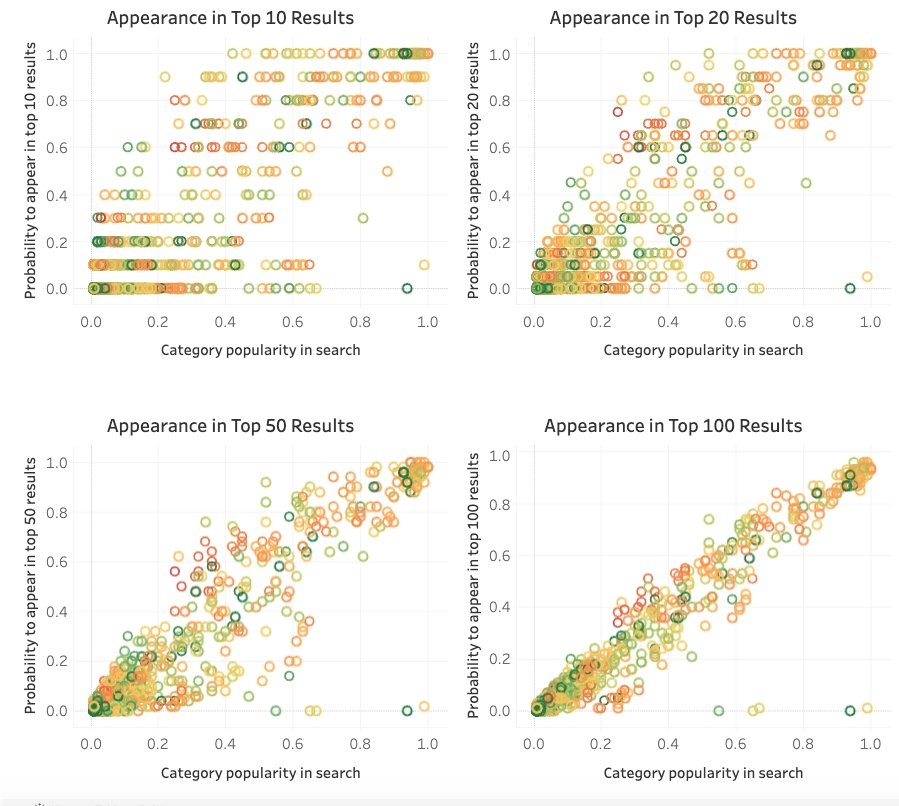Search Terms vs Product Categories
The high competition for organic traffic within the expansive Kitchen Cutlery category on Amazon presents a challenge, akin to various other segments within the marketplace. Optimizing listings for products like schef knives, bread knives and knife sharpeners, is therefore crucial. Among the vital facets of listing optimization lies the accurate categorization of products, as this directly influences their visibility and ranking for pertinent search terms. This article aims to shed light on the pivotal role played by precise product categorization in maximizing visibility and rankings on Amazon, showcasing its importance within the realm of Kitchen Cutlery products.
One complexity of Amazon’s search dynamics lies in the relationship between targeted search terms and the assortment of product categories featured in their search results. For instance, consider search term “ceramic knife”a query encompassing multiple categories like Knife Sets, Specialty Knives, Paring Knives and other categories within its results, showcasing a mix of product listings:

In contrast, search term “ceramic knife sharpener” predominantly showcases products from a single main category – Knife Sharpeners, where approximately 97% of the results fall under this primary category:

Understanding these patterns becomes imperative for sellers navigating the intricacies of search optimization within the Kitchen Cutlery space and other niches on Amazon. Let’s demonstrate the importance of this notion by examining the probability of a product to rank within the top results of a given search term, based on its category. For this purpose, let’s take the second example above, with the search term “ceramic knife sharpener”, where the category Knife Sharpeners dominates, encompassing approximately 97% of the products displayed. Our analysis indicates that products categorized within this category possess 80-85% probability of appearing in the top 10 and top 20 search results for the search term “ceramic knife sharpener“, and 92% in the top 50 and top 100, showcasing a strong correlation between category alignment and higher rankings. Contrarily, products categorized under Sharpening Stones, the subsequent popular category for this search term, exhibit a 5-10% probability in the top 10 and top 20 search results, and 1-2% in the top 50 and top 100, highlighting the impact of categorization on search result ranking.
Kitchen Cutlery search space
Further underlining the significance of the relationship between category alignment and search result rankings, our analysis delves into hundreds of search terms within the Kitchen Cutlery landscape. The charts presented below depict the probability of products appearing in the top 10/20/50/100 results based on the correlation between their category and the search term. The strength of this correlation is determined by the popularity of the category within the search results.
Explanations to the chart dimensions: The X axis represents the correlation between the search term and the category; the Y axis represents the probability for a result categorized under the category to appear within the search term’s top 10/20/50/100 results; and the color of the points represents the avg similarity between the category’s products’ content (title) vs the search term (red = maximum similarity, green = minimum similarity):

These visual representations demonstrate a clear trend: a stronger relationship between a search term and a particular category significantly heightens the likelihood of products categorized under it to secure top rankings—be it in the top 10, 20, 50, or 100. Conversely, a weaker relationship diminishes this probability, showcasing the pivotal role of category relevance in determining search result positions. Furthermore, it’s important to note that the similarity level between the search terms and the products’ content is impactful as well, but not as impactful – as can be deduced from the charts. The derivative of such conclusion is that you can have two products with content which is more or less as similar to the search term, but the one categorized under the “correct” category will have much higher chance in ranking within the top results compared to the other.
Conclusion
The presented data establishes a clear and direct correlation between precise categorization and amplified visibility, organic traffic surge, and ultimately, an upsurge in sales. This is true for the Kitchen Cutlery space, as well as in other spaces. This underscores the paramount importance DeepM places on meticulously analyzing search term/category relationships within its Marketplace Intelligence and Marketplace Optimization solutions. The demonstrated impact solidifies the foundation of our commitment to optimizing categorization strategies for heightened success on Amazon’s platform.








